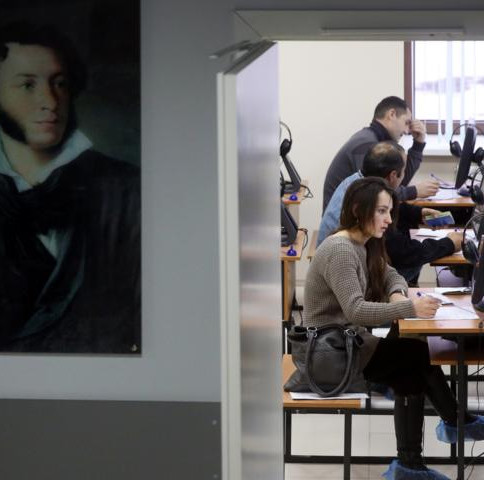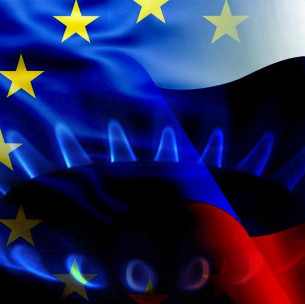Mr.General Secretary, the year 2007 is distinguished for the significant expansion of SCO range of activities, growth of SCO weight in the international arena, and several notable events including the Bishkek Summit. From your point of view, what are the most important results of the SCO work in the passed period, and do you agree with an opinion that the Shanghai Organization nowadays is progressing to a new quality level?
As for the new quality level, there is a reason to feel it. From my point of view, there are two factors of this progress: the successful fulfillment of an organization establishment phase in 2006 and the commencement of a practical phase of multi-field cooperation both within the Organization and with our international partners. In practice, it is reflected in significant intensification of our efforts aimed at fulfilling the tasks set by the governing bodies, and drawing-up new proposals and initiatives relating to the SCO development.
The key benchmarks of the passed year include the Bishkek Summit and Tashkent Meeting of SCO Heads of State. Taking into consideration the strategic and comprehensive nature of the adopted documents – the Bishkek Declaration and Treaty on Long-Term Neighborliness, Friendship and Cooperation, we may say that the Organization succeeded not only in expansion of its contractual basis but also in determination of its new prospects. Specific agreements in different spheres will be prepared in pursuance of these documents that will provide for launching new cooperation projects. Besides, it is important to mention the positive outcomes of cooperation in the spheres of politics and security. As you know, successful large-scale anti-terrorist military exercises “Peaceful Mission – 2007” evoked a wide international response.
The picture would not be complete, if I said nothing about implementation of infrastructure, industrial and energy projects. In this connection, the heads of state and heads of government drew attention of their executive authorities to the need to boost cooperation in the economic and humanitarian spheres. Implementation of certain infrastructure projects predetermined an active role of such economic and banking institutions established within the SCO as the Business Council and SCO Inter-Bank Association. So, we have no opportunity to rest on our laurels, we must give the dynamic pace to our work in all spheres which are increasing in number as the cooperation expands.
The positive results of the year also include the expansion of SCO relations with other international organizations. This year, we were invited to attend three summits – CIS, CSTO and EurAsEC, participate in the events arranged by the ESCAP, ADB and ASEAN, we signed an MOU with the CSTO Secretariat and actively cooperated with other regional political and economic organizations.
What could you say to those who still claim that the SCO is a kind of an anti-NATO structure built by Russia and China to counter the USA and its allies in the international arena?
It seems to me that due to our and your explanatory work (and we highly appreciate the potential of InfoShos Web Site) such statements are made now less dogmatically than before. Serious analysts should assess the SCO based on our charter goals and objectives and diversified cooperation within the SCO. As for a defensive component of the SCO, it is purely of an antiterrorist nature.
I’d like to add that each of our countries develops bilateral long-term cooperation with the USA and other extra-regional states and organizations. We stand for mutually beneficial cooperation and respect for interests of each other. Each direction of our Organization’s activity has a significant potential for effective cooperation with those who are interested in the fair world order, stability and security on Eurasia.
Simultaneously, the SCO believes that it is possible to successfully withstand challenges and threats only provided the stability and security in Central Asia are ensured first of all by own forces of the regional states on the basis of the established regional integration alliances. The Organization has this potential, and it is capable of playing its independent role in maintaining the stability and security within the area of its responsibility. This capability has been confirmed in practice.
Evidently, the power engineering is one of the priority areas of the SCO cooperation that is confirmed by recent establishment of an Energy Club within the Organization. Do you think that the development of energy partnership should become a core of the SCO activity in foreseeable future?
Taking into account the dimensions of the objectives pertaining to establishment of the Energy Club and elaboration of the Asian Energy Strategy, it will take time and require persistent efforts to harmonize the positions of the parties. I’d like to specify that we do not intend to set up a cartel of an OPEC type because the SCO member states include producers, consumers and transit countries. Therefore they have different interests that virtually complement each other. We think that it would be quite logical if the new structure within the SCO should not only serve the interests of the member states but also work in the context of wide international cooperation.
It would be hardly correct to say that the energy cooperation will be a top priority for the SCO in future. It doesn’t result from the Organization Charter objectives and tasks. We are interested in balanced development of all directions, but the energy engineering could boost many of them. We may say that it is one of the most effective vehicles to accelerate the SCO economic cooperation.
In spite of the declared SCO economic and humanitarian priorities, the problems of security in Central Asia, in particular, in Afghanistan affect the interests of the Organization member states. In this connection what do you think about the role of the developing cooperation between the SCO and CSTO that Secretariats recently signed a memorandum of understanding?
An MOU recently signed with the CSTO Secretariat provides a legal basis for political and security cooperation. It seems that we could exchange information with our partners for in-depth analysis of the situation in the region and prospects of its development, design common measures to withstand the terror, drug and weapon trafficking. It is one of the directions of our cooperation.
Another not less important direction lies in joining the SCO and CSTO efforts to render effective economic, humanitarian and other assistance to Afghanistan that lives in the conditions of never-ending hostilities for years. Unlike other countries, the SCO member states are geographical, ethnical and economical neighbors of this country. Therefore, we comprehend the Afghanistan’s problems well enough, and it looks like that we have to solve them jointly. In order to prevent penetration of instability factors from the territory of Afghanistan the dialogue between the SCO and CSTO on the Afghanistan problem should be maximum substantial.
Experts and civil society entities have been discussing the need and ways to create a common SCO information space for many years. In your opinion, what could be done to accelerate this process and what would be the role of Internet in this process? What is your personal attitude to “the world web” and does Internet help you in your routine work?
I agree with such raising the question. I think that the first steps towards creation of a common SCO information space have been taken already. Based on our organizational, technical and financial possibilities we perform joint actions in the sphere of international information security, promote the use of Internet for wide-scope explanatory work in the public and political circles, and develop our contacts with the mass media. I believe that the cooperation in the spheres of culture and education, that gains momentum, also expands the boundaries of the SCO information space.
I’d like to say a few good words to InforShos Web Site that from the very beginning proved to be an important and rather useful tool in provision of diversified information about the SCO, including analyses and on-line information. We approach it every day, “synchronize time”, and hope that you have the same good feels.
Due to rather understandable reasons, the web site of the SCO Secretariat is not in position to provide such massive and “contrast” information - we have to verify each our word with the official positions of the member states because the people approach our site for this very purpose.
At the same time, I believe it would be useful to continue our multidimensional dialogue, and I think that cooperation of our mass media outlets would facilitate fulfillment of the objectives and tasks that are set by our young Organization.
I’d like to emphasize the importance of Web Site “Regional Economic Cooperation within SCO” sponsored by the Chinese Ministry of Commerce. Other SCO member states also make the respective efforts to popularize their participation in the Organization, including the support of corresponding web sites.









